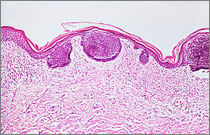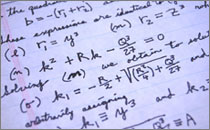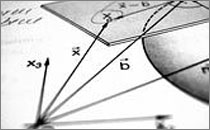Conversion table/coding manual
for hemato-oncological diseases for use in population-based and clinical cancer registries (ICD-O-3 to ICD-10)
The tables to convert ICD-O-3 codes into ICD-10 codes after the update in 2011 are applicable for hemato-oncological diseases (ICD-10: C81-96, D45-47). They were developed because a direct conversion of ICD-10 codes from the WHO 2006 version into the newer WHO 2011 version is not possible for most hemato-oncological diagnoses.
Clinical and population-based cancer registries use the ICD-10 classification as well as the often more specific ICD-O-3 classification. The conversion table now makes it possible to automatically convert all previously collected data into the new ICD-10 version using the ICD-O-3 information. This makes it easier to present time series in reports based on the new ICD-10 version. Additionally, use of the standardised conversion table can help increase comparability of the results across the registries.
Attempting to convert on the basis of ICD-O-3 codes alone sometimes leads to multiple plausible ICD-10 codes. In such cases, additional information (e.g., from pathology reports regarding the diagnosis) might aid in determining the most appropriate code. However, this information may either be unavailable or require an overly burdensome amount of resources to collect.
To allow the automated conversion of such cases based on ICD-O-3 codes alone, expert consensus was used to select a single ICD-10 code for the table ('ICDO3_to_ICD10_1-to-1'). To indicate cases of uncertainty, a second conversion table was developed to list alternative ICD-10 codes ('ICDO3_to_ICD10_1-to-m'). Although these alternatives may not be exhaustive, they can be used for plausibility checks.
Additionally, a conversion table from ICD-10 to ICD-O-3 (morphology) was developed to create a morphology code when only an ICD-10 code has been registered (e.g. for DCO cases).
The conversion files were developed within a cooperative project by the Center for Cancer Registry Data (ZfKD) at the Robert Koch Institute, the Association of Population-based Cancer Registries in Germany (GEKID), the Working Group of German Tumor Centers (ADT) and the German Institute of Medical Documentation and Information (DIMDI). The project was supported by the Federal Ministry of Health (BMG). Professor Stefan W. Krause (Hematology and Oncology at the Universitaetsklinikum Erlangen) has thankfully provided expertise in developing the conversion.
Date: 02.10.2014






